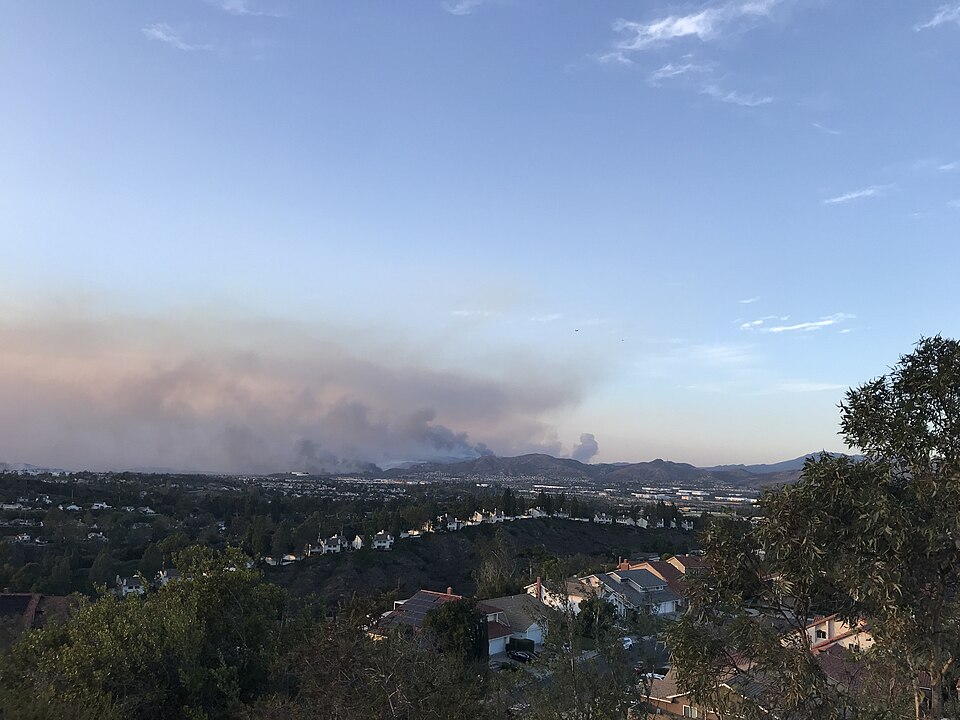
Increasing Climate Resilience at UC Irvine
By Aarushi Gupta | May 2025
Climate action has never been more important than today. Addressing climate change is not merely a response to the environmental challenge, but a global imperative to protect our collective health and well-being.
Climate change is altering long-term climate conditions as well as causing widespread and intensifying extreme weather events worldwide, including in California, such as frequent extreme heat events, persistent droughts, raging wildfires, damaging floods, and rising sea levels. In the wake of the LA wildfires, we are all being asked: what do we do to prepare and how do we adapt?
These climate hazards are causing a wide range of impacts on human physical and mental health, livelihoods, well-being, and day-to-day life; however, not everyone is being impacted equally. Marginalized and vulnerable groups are often shouldering a disproportionate burden of climate impacts. Climate change serves as a risk multiplier, intensifying existing disparities and influencing the social and environmental factors that affect human well-being.
By planning for climate resilience, UC Irvine, UC Irvine Health, and the UC system, can help protect the health and well-being of our community - students, staff, faculty, patients, and visitors, and ensure they can continue to deliver essential services during climate disturbances when the campus community relies on them the most.
Recognizing the imperative to act on climate change through mitigation, adaptation and incorporating social equity principles, UCI is committed to continuing to be a leader in climate action, upholding the University of California’s goals and meeting state emissions reduction targets. Better preparedness for future climate extremes and hazards protects health and helps avoid damage and cost of remediation.

“Climate resilience is the ability of a system or community to survive disruption and to anticipate, adapt, and flourish in the face of change” (Second Nature). Resilience planning is essential to ensure that UCI protects their people, assets, and services as climate hazards intensify in future years. By integrating resilience planning into their Climate Action Plan (CAP), UCI can develop synergistic solutions, increase resource efficiency, demonstrate climate leadership, and foster stronger institutional buy-in.
Combining resilience and mitigation approaches provides a dual benefit, addressing key vulnerabilities while reducing long-term climate impacts. Prioritizing resilient decarbonization strategies ensures that efforts to reduce greenhouse gas emissions remain effective under future climate conditions. Similarly, adopting low-carbon resilience approaches helps institutions prepare for challenges while contributing to a sustainable future.
In addition, both aspects of climate action need to incorporate considerations of climate justice and social equity to ensure that the burden of climate impacts and zero-carbon transition are not carried disproportionally among marginalized communities, and that these communities are considered, engaged and supported. Therefore, prioritizing justice, equity, diversity and inclusion (JEDI) is critical in climate action planning.

UC Irvine Campus Planning and Sustainability has been working to update the campus’ Climate Action & Adaptation Plan through a two pronged approach: Climate Resilience and Decarbonization. The Climate Resilience project has focused on conducting a Vulnerability Assessment to understand how best to adapt to the existing climate hazards whereas the Decarbonization project has looked at how to mitigate the university’s emissions as not to exacerbate the climate crisis.
Through a series of stakeholder engagement events including tabling, one on one interviews, town hall style events, and more, CPS slowly pieced together an image of what hazards are affecting people and services and how. We captured stories on how students with asthma are impacted by wildfire smoke events just trying to get to class and how research at the Ecological Preserve would be affected if a wildfire started.
In the process of gathering these stories, we evaluated and categorized types of impacts based on probability, sensitivity, and adaptive capacity. After consulting with relevant stakeholders (Environmental Health & Safety, Emergency Management, Disability Services, etc), we compiled a list of actions that are currently taken to address these impacts in addition to a list of other possible solutions.
As we move forward with the Climate Resilience project and incorporate our findings into the Climate Action Plan, we welcome feedback and stories from our campus community. Please continue to advise us on how climate hazards have impacted your day-to-day life and what solutions you would like to see implemented.
This project is being led by the team at Campus Planning and Sustainability and is supported by a Bonnie Reiss Leading on Climate Fellow, Cecilia Del Rivo, as well as a UC systemwide consulting team, Introba. Contact our office for more information.